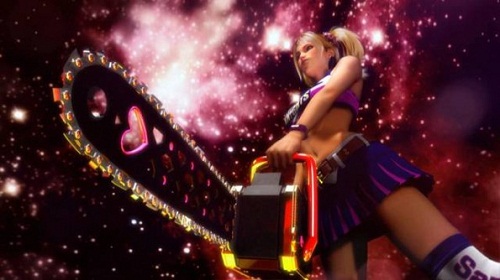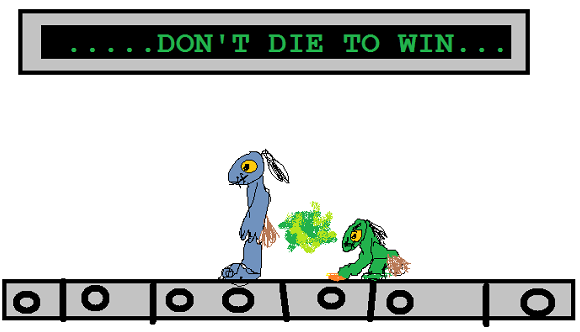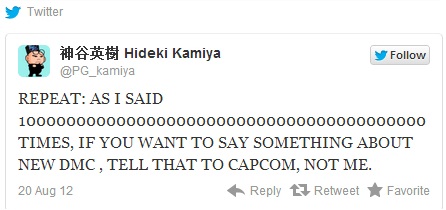This post has not been edited by the GamesBeat staff. Opinions by GamesBeat community writers do not necessarily reflect those of the staff.
![]()
Many questions that children ask can leave parents feeling dumbfounded, embarrassed, and awkward as they attempt to provide an appropriate explanation for mature or complex topics. Equally so, a child of the 80's and 90's asking “Where do games come from?” would have most parents scratching their heads as they tried to figure out how the mystical cartridges actually come about.
As an adult with a far better understanding of the process of creating video games, I've taken it upon myself to discover the true origins of the key titles that defined my youth. This doesn't simply mean creating a list of development studios and teams, I want to learn about the individual people and individual minds from which these important pieces of my own personal history were born, as well as what they went on to do, and where they are today.
Although such a task would have been nearly impossible for my parents in the days before the internet, my access to modern online social media and networking makes it ridiculously easy. However, a minority of bitter gamers who take the ability to interact directly with developers for granted may ruin it for us all.
“Where do games come from?” was never a question I actually asked as a child. I simply took everything at face value. My Genesis games were from Sega, because that's what it said on the box, and Sega made games because they wanted my brothers, my friends, and me to have fun. It was as simple as that.
In my teenage years, when a lot of my time was spent with my fancy new GameCube, I took more of an interest in how the experience of playing an entire game made me feel emotionally. I started taking mental notes of the teams responsible for particular franchises and became familiar with their styles. For example, I attributed Metroid Prime's stark differences to previous Metroid titles to the Retro Studios name in the opening credits, and the similar lack of Naughty Dog's name explained the disappointing Crash Bandicoot: the Wrath of Cortex.
Of course, during the early 2000s, the names of those in charge of designing, developing, and producing my favorite games were not as elusive as they once were. A few minutes spent with a good search engine would have given me all the details I needed. Unfortunately, I still didn't care … just so long as the good games kept on coming.

Things are very different now. The names of individual people involved in a newly announced game can speak volumes for its artistic style, aesthetics, gameplay, and story before any substantial details are released. Names such as Shigeru Miyamoto, Hideo Kojima, and Suda51 have broken free of the confinements of the credits. It is now their names that define their works, and their involvement in a particular title often becomes its selling point.
In addition to the emergence of highly successful industry legends, the rapidly expanding world of indie games is seeing a similar phenomenon albeit at the other end of the scale. Just how many people purchased Cave Story Plus after reading of the original version's five year development carried out in Daisuke Amaya's spare time, or decided to buy Fez as a result of Phil Fish's appearance in Indie Game: The Movie? The stories behind the creation of indie games allow the people buying them to relate to the individuals making them. In the case of Kickstarter projects, many contributors feel they are buying into and becoming part of these stories.
September saw me finally deciding to join the rest of the world on Twitter, both as a means of staying in touch with people I know and to get a little closer to my industry heroes. Although I created my account only two months ago, I am already astounded at the intimacy we can now have with the teams — and even the individual people — that have made our favorite games a reality.
A prime example of this is when I sent a light-hearted joke in the form of a crudely drawn picture to Oddworld Inhabitants Inc. regarding their upcoming remake of Oddworld: Abe's Oddysee. To my complete and utter surprise, I got a “haha” in response.

I imagined going back in time and watching my younger self take those first few steps through Oddworld's Rupture Farms, jumping over those first pits and liberating those first Mudokons. Asking my younger self to send a joke to Oddworld Inhabitants back then would have been a cruel joke in and of itself, yet the combination of instant information via the internet and social media now closes the gap between dream weaver and dreamer almost entirely. It is at this point I realize just how significant this small interaction really is. If only we were all as appreciative.
Bayonetta 2's WiiU exclusivity suffered an almost-legendary backlash from upset “fans.” I feel for the poor souls at Nintendo and Platinum Games tasked with going through the the sickening obscenities thrown at them on Twitter. Even Platinum Games director Hideki Kamiya himself has been directly assaulted by these disgruntled gamers. In a more recent event, Kamiya even lashed out at the hundreds of Twitter users pestering him with questions about Ninja Theory's Devil May Cry reboot. Don't these gamers realize how fortunate they are to even be able to send Kamiya messages in the first place?
As I read the death threats, suicide pacts, and calls for boycotts, I wonder just how long it will be before developers decide to go back to being credited only at the end of a game and only ever interacting with the rest of the gaming world by appointment. Perhaps we'll see the return of developer pseudonyms used in order to veil themselves from the onslaught of hateful messages from the so-called fans they work so hard to please.
This scenario is, or course, quite unlikely. The benefits of a strong online presence to developers and publishers far out weigh any negativity these companies may receive. Even without the luxury of social media as a tool to directly interact with game industry icons, internet forums, YouTube comments, and the like would still act as the breeding grounds for volatile comments by enraged gamers.

The ability to send positive messages to our gaming heroes — be they constructive criticisms or a virtual thumbs up — may be taken for granted by many of us. We have a fantastic opportunity to develop social media into a tool allowing us to stand side-by-side with developers and potentially impact decisions made during a title’s creation.
One can only hope that Hideki Kamiya is able to see past the hate and take onboard the praise and excitement from the rational Bayonetta 2 and Platinum Games supporters. Personally, I hope that my appreciation of Oddworld: Abe's Oddysee is shown in the silly picture I sent, because if I were to make even one of those fellows chuckle from a simple Tweet, then we truly do live in an age of technological marvels and we must not forget just how exciting that is.
